- Home
- Sarah Woodbury
Song of the Pendragon (The Last Pendragon Saga Book 3) Page 2
Song of the Pendragon (The Last Pendragon Saga Book 3) Read online
Page 2
In the time since Cadfael had disappeared, however, the hall had changed beyond recognition. Gone were the faded tapestries and weapons of war, replaced by long banners in jewel tones and fresh rush mats scented with herbs laid on the floor. Standing along each wall, their hands behind their backs or resting on the hilts of their swords, were the great men of Gwynedd. They’d come to meet Cade, even to serve him.
Perhaps.
Meanwhile, they watched, waiting for their leader to greet them. Cade kissed the top of his mother’s head and gently put her to one side. Alcfrith moved to stand beside Rhiann and clasped her hand.
“Thank you,” she said. “You’ve given me back my life.”
Rhiann didn’t deny her. “And in doing so, found mine.”
Cade straightened his shoulders and in a swift movement, unsheathed Caledfwlch. Holding it in front of him, he paced across the hall towards the high table, which was empty of guests. The sword, always lit from within even in sunlight, glowed increasingly brighter with every step he took. Streams of light shown from it, as if it was a star in Cade’s hand.
The men against the wall murmured, taking note of Cade’s men who’d begun to file into the hall and take up positions along the wall. They spoke to each other as they filled in the spaces. Dafydd nodded tersely at one man who’d engaged him in conversation, but his formality was tempered by the light in his eyes and the quick grin he couldn’t completely suppress.
“Caledfwlch!” The word burst from a man near the front of the room.
“Is it really?” One of the guards near the door whispered to his companion.
“It is Caledfwlch,” Taliesin said, loudly. “I name it Battle-breach; the ancient sword of the High King, last wielded by King Arthur himself.”
Those near him nodded their heads and repeated the news to their neighbor who might not have heard what Taliesin had said. The information passed among the crowd; just as Cade reached the front of the room, someone shouted, “Cadwaladr!” In a heartbeat the room went from solemnity to chaos, with shouts, clapping, and amazingly to Rhiann, laughter—laughter that actually signified joy and not derision. When had that emotion ever been felt in this hall? Not since the time of Cadwallon, before Rhiann herself was born.
Cade turned to face the crowd, still holding his sword in his hand. Gradually the room quieted. Cade relaxed and rested Caledfwlch on his right shoulder. When the last of his men had filed into the room, Cade nodded at Taliesin. Taliesin tapped his way forward, leaning more than he needed to on his staff, loving the drama of the occasion and undoubtedly playing it up because he could.
The eyes of everyone in the hall were on him now. Taliesin stopped in the center of the cleared space between the tables and flung out his arms. Rhiann expected poetry, but his words were nothing out of the ordinary, although they made all the difference in the world: “I present to you Cadwaladr ap Cadwallon, the Pendragon,” he said, and gestured towards Cade at the front of the room, “King of Gwynedd.”
As the words rolled out of him, they seemed to take tangible shape in the air, and Taliesin himself appeared to loom up to the ceiling, much as he had that first night at Dinas Emrys. Then he began to chant:
“There was a time when the people of Cymry,
Possessed wealth and peace before their sovereign king.
The people of Cymry
Found tranquility at his table.
But what is this?
Commotion in every land; a wasteland of desolate years.
The ambitious man raises his head,
The jealous man rises from his knees,
The righteous man lifts his hands in prayer,
Begging for deliverance.
The Cymry lost their bounty,
Choosing alliance with their enemies.
Who laid waste to our lands,
Demanding our pledge in trade for peace.
But see who rides forth, no longer hiding,
The dragon banner raised high,
Submitting to no one:
No foreign king, no Saxon, no creature from the depths of Annwn.
See his men: Rhun, Bedwyr, Hywel, Dafydd, Goronwy.
Riding out of tales from another age,
Strapping their swords to their waists,
Setting their pikes in their rests,
Spurring forward,
Protectors of a ravaged country.
The land will be red with battle and strife.
None will stand against him.
All will fall to their knees before him.
The Cymry will rise,
When Cadwaladr comes.”
The gathering paused as the song ended, and then it was as if everyone let out a deep sigh. Cade’s eyes twinkled and Rhiann realized that he and Taliesin had cooked this up together. Alcfrith still stood next to Rhiann, watching Cade, tears streaming steadily down her face, although she didn’t sob or cry and her eyes weren’t reddened. Cade brought his sword forward again and then sheathed it.
Taking it as a signal for action, the men around the room filed towards Cade, who stood, feet spread, hands resting gently at his sides. Rhiann had seen this ceremony many times in her life, most recently for Rhun at Bryn y Castell. The men were to swear their allegiance to their lord.
“I don’t have a crown for him,” Alcfrith said. “I couldn’t find it after Cadfael left.”
“He took it with him,” Rhiann said. “He was wearing it when he died.”
Alcfrith turned to her. The tears had stopped and her eyes were clear. “You saw him die?”
“No,” Rhiann said. “But I saw him afterwards.”
Alcfrith studied her. “I cannot mourn him. I don’t know that I can forgive him.”
“I know,” Rhiann said, and then added, “Cade didn’t want to wear Cadfael’s crown anyway, even if it had once been his father’s. Taliesin told him that Caledfwlch would be more than enough.”
“It is,” Alcfrith said.
Owain of Rhos, Cadfael’s nephew who might himself have claimed the throne, was the first of the lords to bow to Cade. His sons and the lesser lords of his domains followed him. Tudur of Meirionydd and his sons and under lords were next and then the entire garrison of Aberffraw. All told, close to fifty men pledged their allegiance to Cade. Missing, of course, were Iaen of Caer Dathyl and his sons, with the exception of Siawn who took his place in line. When he reached Cade, the two men clasped arms. When they defeated Teregad, perhaps Siawn would be the next king of Caer Dathyl.
After every man had sworn their allegiance and found his seat, Cade walked towards Alcfrith and Rhiann. He held out an elbow to each of them, which they took, and then walked up the hall to find seats on either side of him at the high table. They sat, but Taliesin continued to stand. He’d moved aside to allow the men to greet Cade, but now placed himself in the center of the hall again, waiting for it to quiet.
“I, Taliesin, tell this story,” he said in his singing voice. “All who have ears, listen well and understand. Twenty years ago, Cadwallon ap Cadfan was felled by his own vassal in a field plowed by a Saxon, far from his mountains; far from his wife and son. At Cadwallon’s death, the Dragon of Wales soared in the sky.”
Cade reached for his mother’s hand. He held it, without looking at her or speaking.
“The bards disagreed among themselves. They did not know if the portents were for the new dragon, just an infant in Gwynedd, or a sign of mourning for his father. The boy’s mother took no chances. She gave her son, Cadwaladr, to me, to be raised in safety, far from his home and these rich lands.” The silence in the room was absolute. Nobody dared question his story, or how this young man in his middle twenties could be the Taliesin who had lived all those years ago.
Taliesin continued. “The boy grew, as boys do. After Cadwaladr took Dinas Emrys from him, Cadfael asked him to come to Aberffraw, to stand at his side as the heir to Gwynedd. Cadwaladr rode to Anglesey with his foster-father, Cynyr of Bryn y Castell, for that purpose. Instead of welcoming Ca
dwaladr as he had promised, Cadfael saw to the deaths of all of Cadwaladr’s companions, the deed perpetrated by many of the men who are here today.” With that, Taliesin glared around the room. When his gaze fell upon each of the accused, the man cowered under the force of it.
“Cadfael spared Cadwaladr for a day, imprisoning him in this very fort. What Cadfael didn’t know was that he’d raised a warrior in his own household who would not countenance Cadwaladr’s death.” Taliesin half-turned his body and winked at Rhiann. “Rhiannon freed Cadwaladr. Since then, Cadwaladr has defeated a Saxon invasion at Llanllugan, and he ...” Taliesin hesitated. Everyone leaned forward, not wanting to miss what came next. “When Teregad, son of King Iaen of Caer Dathyl, thought to imprison Cadwaladr in Caer Ddu, with the help of his companions, Cadwaladr drew Caledfwlch from a stone and escaped.”
“Now, he faces a far greater threat than just Cadfael, or Teregad. Arawn himself threatens our world. His son, Mabon, was also at Caer Ddu. He seeks to release the creatures of the Underworld. We believe that the black cauldron lies underneath Caer Dathyl. In two days’ time, Cadwaladr will travel there to force Arawn to close it.”
At this, the hall exploded in an uproar, with men shouting both their support of Cade and disbelief of Taliesin’s words. Cade let the hubbub reign free so that men could release their surprise and anger. Then, he stood. Instantly the room calmed. When he held up his hand, it silenced.
“Thank you for your attention today,” he said. “It warms my heart to be welcomed in this hall, given what happened here just a short time ago.”
Owain of Rhos got to his feet. His face was red. “Why should we believe this man?” He indicated Taliesin. “He is not Christian.”
“But I am,” Cade said. “And I tell you it is so.”
Owain’s face reddened further.
Siawn rose to his feet. He still wore his priest’s robes. “I must tell you that Taliesin speaks only the truth,” he said. “At Caer Ddu, I shared a prison cell with King Cadwaladr. Mabon and my brother, Teregad, killed Cadfael in front of me. They beat another of my brothers, Crawdawg, so severely that he died.”
“When I met Mabon in his hall,” Cade said, “he spoke to me beneath the tortured body of Cadfael. He had hung him on the wall above his mantle, as decoration.”
Once again, men rose to their feet, expressing outrage—and fear. One man, who was obviously still catching up, asked his neighbor, “Cadfael killed Cynyr of Bryn y Castell?”
“Yes,” the other man said.
“He was a good man,” the first man replied.
Rhiann knew it wasn’t her place to talk in this gathering of men, but she couldn’t remain silent. She stood, and the abruptness of her movement startled the company into silence. “Cynyr was a good man.” Cade looked up at her, but didn’t try to stop her from speaking. She pushed back from the table and walked around it to stand beside Taliesin. “You might remember me. I cowered in the corner of this hall for most of my life.”
“Lady Rhiannon, there is no need,” Owain of Rhos said, but Rhiann put out a hand to stay him.
“My father had a cold heart,” Rhiann said. “He loved no one but his own self and his ambition. He killed Cynyr and his men. He would have killed Cade if I hadn’t freed him. I’m sorry about burning the stables.” Rhiann smiled, ruefully, to scattered chuckling.
Llywelyn, the garrison captain, spoke. “No one was injured, my lady. Those stables were an eyesore anyway.” A few more men laughed at that.
“Cadfael leagued with Teregad of Caer Dathyl,” Rhiann said, as the company sobered again. “Teregad confessed to murdering his own father, Lord Iaen, and taking the throne of Caer Dathyl over his dead body.”
There were more shouts at that news. Although Iaen had been dead a month, his death had been accepted as from natural causes. “I do not know if my father knew that Arawn, at the behest of his son, Mabon, was releasing demons from the Underworld on our people. I do not know if Cadfael repented in the last moments of his life. Lord Siawn assures me that he did not die unshriven.”
Rhiann glanced over at Siawn, who nodded.
“My father’s sins are now the province of God,” Rhiann said, “but it is we who must deal with their aftermath. I have ridden with Cadwaladr. I took my bow to Llanllugan and fought to defend a hundred villagers from Saxon invaders and their demon allies that Arawn has unleashed on Wales. If, I, the bastard daughter of an upstart king, can do this, I do not think it too much to ask the same of you.”
At that, Cade stood. “Lady Rhiannon speaks eloquently of the task before us. But given the nature of the threat, I cannot order you to come with me.”
The expressions of dismay Rhiann’s speech had engendered died down, and Cade continued. “I can ask you to come with me, however. I will face Arawn, with or without you. Death came for Cadfael, in a most hideous fashion, perpetrated by beings so steeped in their own desires that all light has surely been stripped from their souls. Death came for Cadfael, and it will come for each one of us. If I am to die at Arawn’s hand, I would rather it were on my terms, and not his.”
“I will come,” Tudur said, standing.
Cade bent his head in acknowledgement. “I will be proud to fight beside you.”
But Tudur was the only one.
Chapter Two
Cade
The rain fell steadily, soaking Cade from head to foot. It was hardly unexpected, since it rained nearly every day in Wales in March. If Cade had been human, he would have been cold, but as it was, it merely made the bow slide in his hand and his fingers stiff. He’d pulled the hood up to shield his eyes from the drops, but had thrown the bulk of the cloak off his arms to leave them free to shoot. It didn’t seem to be doing him any good, however. For a man who prided himself on accuracy, Cade was remarkably inept today. But then, he had Rhiann beside him.
She was back in her breeches and they were shooting at the targets on the far side of the archery range. Rhiann thought it a good test of her skill to practice under these conditions, as they were not dissimilar to the circumstances under which she had fought at Llanllugan. It had been night then, and very dark, which would have been better for Cade. As it was, the rain was the only reason he was able to be with her now. For that opportunity, he was willing to put up with unpleasant weather.
“Where’s Dafydd?” Cade said. “Didn’t he want to shoot with you?” He glanced at her, gauging her level of concentration, and wondered if the topic would rattle her.
Rhiann sighted down an arrow and released it. It hit the target dead center. “He said that he’d be along later.”
“Dafydd’s a fine knight,” Cade said, hating every moment of this discussion and cursing that he’d even brought Dafydd up.
Rhiann shot another arrow and it hit the target, her sixth perfect shot. “He’s very sweet.” She lowered her bow and turned to look at Cade. “He’s scared, though, Cade. All the men are, even if they won’t admit it.”
Cade was anything but sweet and he knew it. He pressed another arrow into his bow and loosed it, finding Rhiann’s beauty and frankness unbearable, now that the truth had come out. “They have every right to be scared. I’m scared, but I have no choice but to fight.”
“You perceive that you have no choice. Because of who you are, you would not feel yourself a man if you didn’t counter Arawn.”
Cade gave up shooting as another of his arrows flew three feet above the target he was aiming at and thunked into a tree behind it. He turned to Rhiann. He’d not called her cariad again and had endeavored never to be alone with her, now that she spent so much time with Dafydd. It was she who’d asked if he would shoot with her today.
He had called her friend, however, and for the first time since she’d seen him kill that first Saxon archer, he truly felt easy in her presence. Cade had accepted that he loved her but couldn’t have her. Perhaps she’d asked him to shoot with her as a way of letting him know that her revulsion at what he was had lessened; that she could still be his
friend, even if he wasn’t human.
“Allegiance means that you will put your sword where your lord tells you,” Cade said.
“Then you shouldn’t have told the other lords that they didn’t have to come,” Rhiann said, very reasonably.
Except that it wasn’t reasonable. “Rhun agrees that it won’t be possible to take Caer Dathyl with only fifty men. Not even with 150 soldiers could we besiege the fort. We need more men.”
“Is its position really so difficult? Aberffraw is not so impenetrable, nor Bryn y Castell,” Rhiann said.
“It is,” Cade said.
“I would say so as well.”
Rhiann and Cade turned in unison at Dafydd’s voice. He and Hywel strode down the trail from Aberffraw, with Taliesin not far behind. At the sight of them, Rhiann smiled. She turned to Cade, apologetically. “I’ll see you at dinner.”
Cade watched her leave, noting that she and Dafydd touched hands as she passed him. Friends. We’re friends. That’s all.
Dafydd took up the position where Rhiann had stood and shot an arrow, hitting the target dead center. Cade studied it without seeing it, trying not to hate Dafydd and instead think of Caer Dathyl and all that he knew of it.
“If we can’t take it by force,” Hywel said, “we’ll have to find another way.”
“I’ve always liked deception,” Taliesin said. “It suits my sense of adventure.”
Cade turned to Taliesin as he took the last few paces towards him, his cloak dragging in the mud as he navigated a puddle. “Perhaps to the point of knocking on the front door.”
Cade choked on laughter at that. The idea was outrageous. He could just see it—the ten companions strolling up to the gatehouse and asking for admission. Then again ... perhaps there was an answer there.

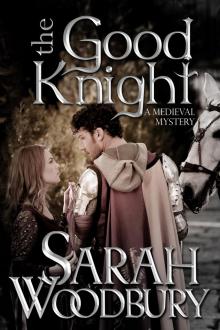 The Good Knight
The Good Knight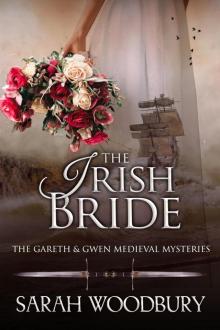 The Irish Bride
The Irish Bride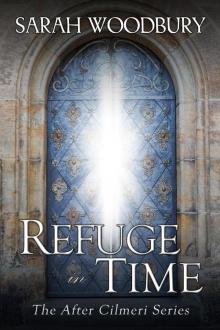 Refuge in Time
Refuge in Time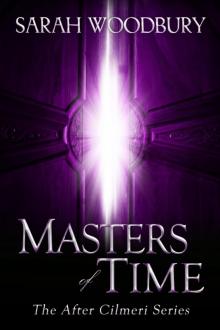 Masters of Time
Masters of Time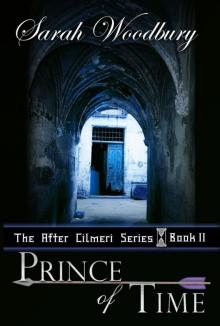 Prince of Time (Book Two in the After Cilmeri series)
Prince of Time (Book Two in the After Cilmeri series)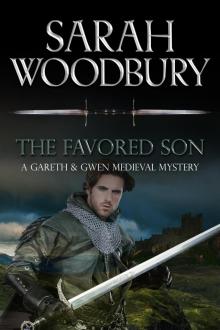 The Favored Son
The Favored Son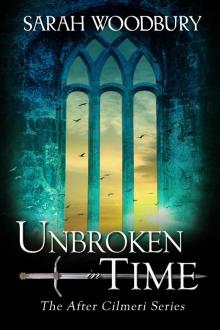 Unbroken in Time
Unbroken in Time![[The Lion of Wales 01.0] Cold My Heart Read online](http://i1.bookreadfree.com/i/03/22/the_lion_of_wales_01_0_cold_my_heart_preview.jpg) [The Lion of Wales 01.0] Cold My Heart
[The Lion of Wales 01.0] Cold My Heart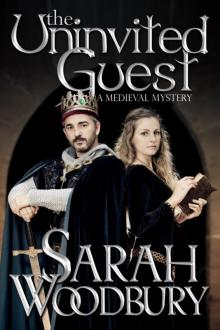 The Uninvited Guest
The Uninvited Guest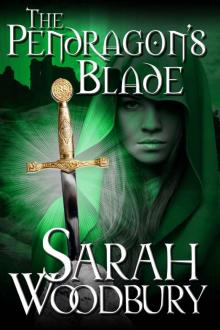 The Pendragon's Blade (The Last Pendragon Saga Book 2)
The Pendragon's Blade (The Last Pendragon Saga Book 2)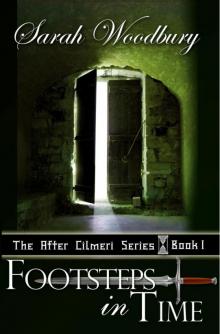 Footsteps in Time
Footsteps in Time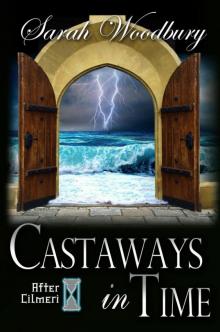 Castaways in Time (The After Cilmeri Series)
Castaways in Time (The After Cilmeri Series)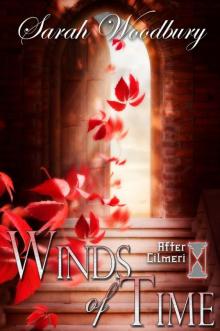 Winds of Time
Winds of Time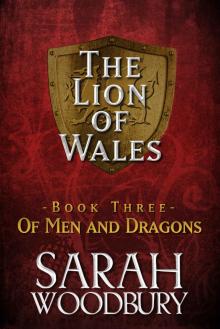 Of Men and Dragons (The Lion of Wales Book 3)
Of Men and Dragons (The Lion of Wales Book 3)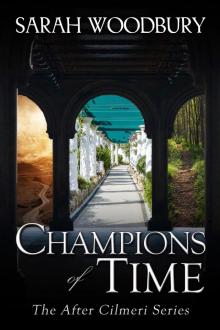 Champions of Time
Champions of Time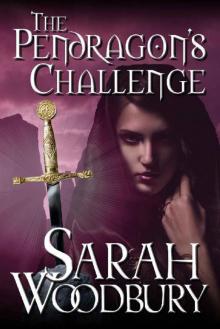 The Pendragon's Challenge (The Last Pendragon Saga Book 7)
The Pendragon's Challenge (The Last Pendragon Saga Book 7)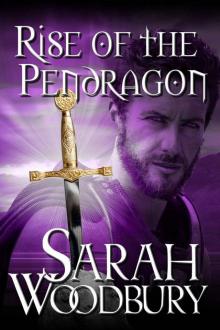 Rise of the Pendragon (The Last Pendragon Saga Book 6)
Rise of the Pendragon (The Last Pendragon Saga Book 6)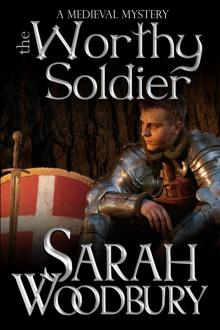 The Worthy Soldier
The Worthy Soldier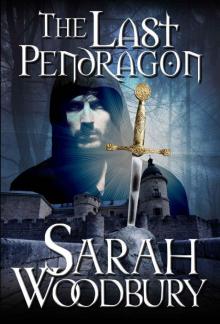 The Last Pendragon (The Last Pendragon Saga Book 1)
The Last Pendragon (The Last Pendragon Saga Book 1)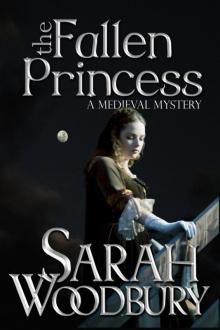 The Fallen Princess
The Fallen Princess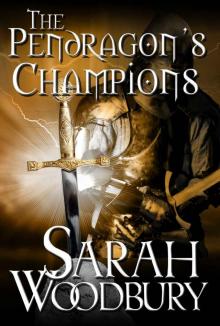 The Pendragon's Champions (The Last Pendragon Saga Book 5)
The Pendragon's Champions (The Last Pendragon Saga Book 5)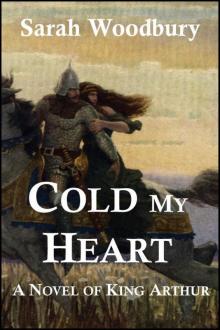 Cold My Heart: A Novel of King Arthur
Cold My Heart: A Novel of King Arthur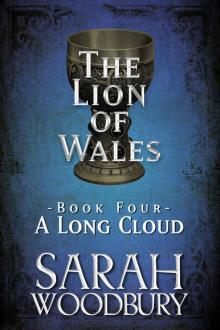 A Long Cloud (The Lion of Wales Book 4)
A Long Cloud (The Lion of Wales Book 4)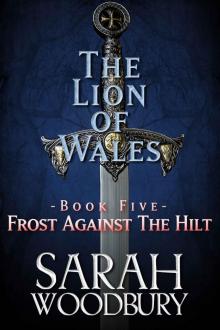 Frost Against the Hilt (The Lion of Wales Book 5)
Frost Against the Hilt (The Lion of Wales Book 5)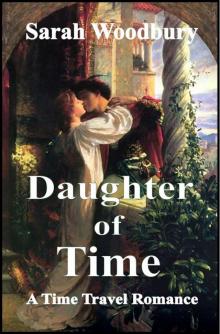 Daughter of Time: A Time Travel Romance
Daughter of Time: A Time Travel Romance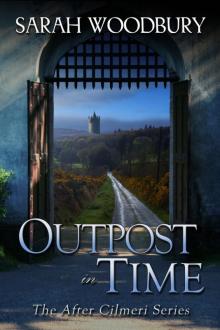 Outpost in Time
Outpost in Time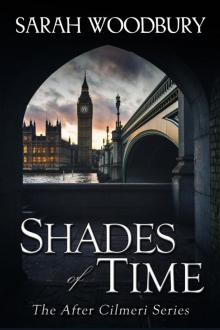 Shades of Time kobo
Shades of Time kobo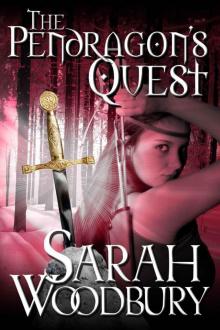 The Pendragon's Quest (The Last Pendragon Saga Book 4)
The Pendragon's Quest (The Last Pendragon Saga Book 4)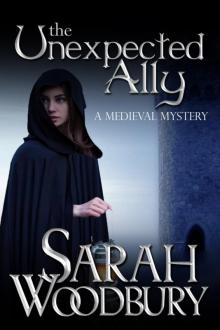 The Unexpected Ally
The Unexpected Ally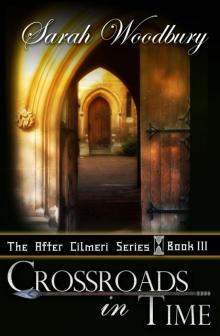 Crossroads in Time (The After Cilmeri Series)
Crossroads in Time (The After Cilmeri Series)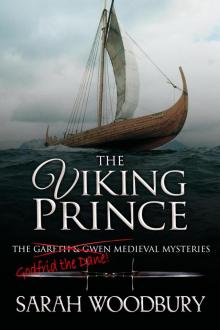 The Viking Prince
The Viking Prince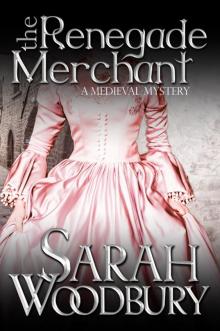 The Renegade Merchant
The Renegade Merchant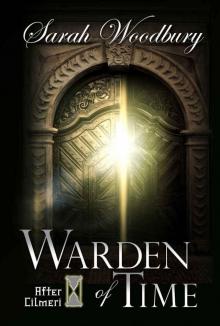 Warden of Time (The After Cilmeri Series Book 8)
Warden of Time (The After Cilmeri Series Book 8)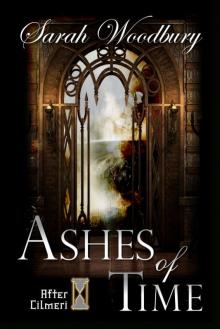 Ashes of Time (The After Cilmeri Series)
Ashes of Time (The After Cilmeri Series)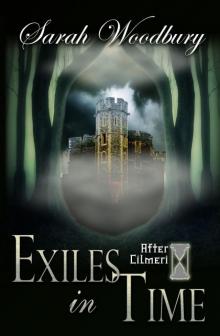 Exiles in Time (The After Cilmeri Series)
Exiles in Time (The After Cilmeri Series)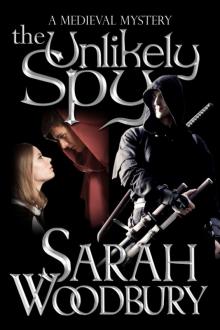 The Unlikely Spy
The Unlikely Spy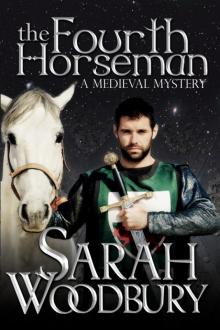 The Fourth Horseman
The Fourth Horseman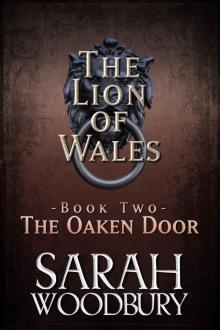 The Oaken Door (The Lion of Wales Book 2)
The Oaken Door (The Lion of Wales Book 2)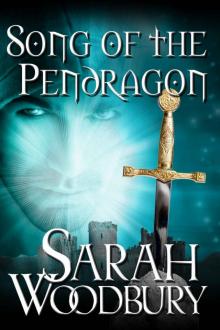 Song of the Pendragon (The Last Pendragon Saga Book 3)
Song of the Pendragon (The Last Pendragon Saga Book 3)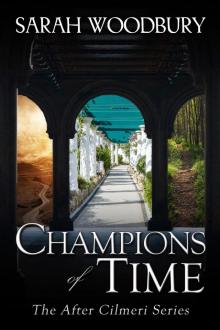 Champions of Time (The After Cilmeri Series, #13)
Champions of Time (The After Cilmeri Series, #13)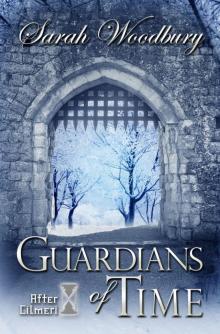 Guardians of Time
Guardians of Time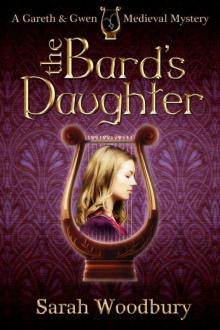 The Bard's Daughter (A Gareth and Gwen Medieval Mystery)
The Bard's Daughter (A Gareth and Gwen Medieval Mystery)